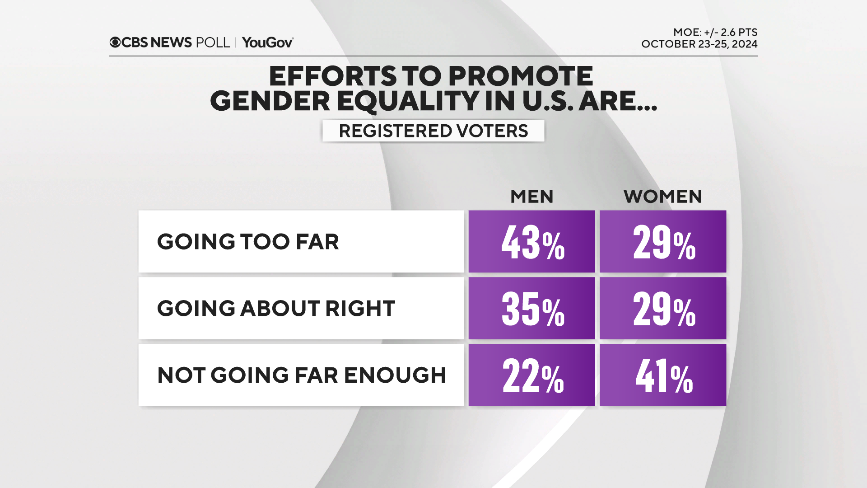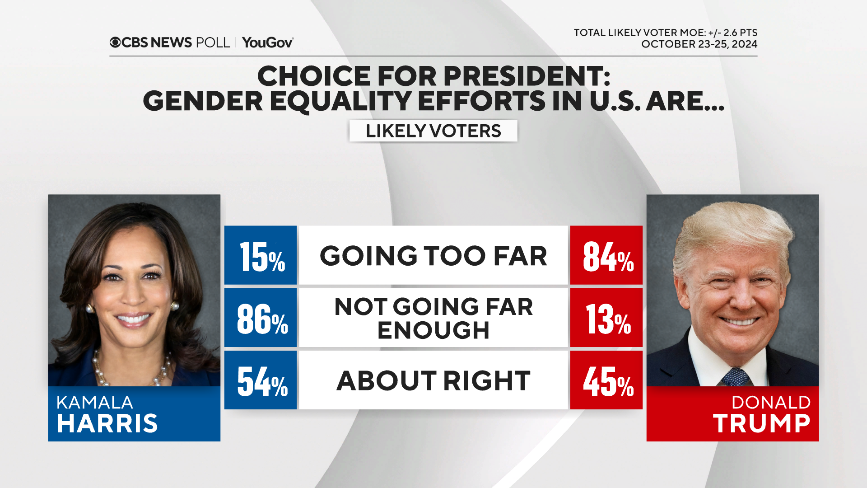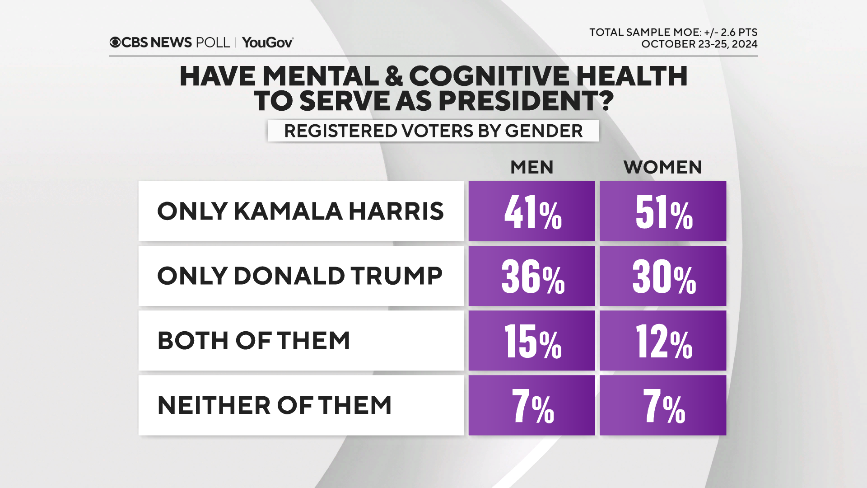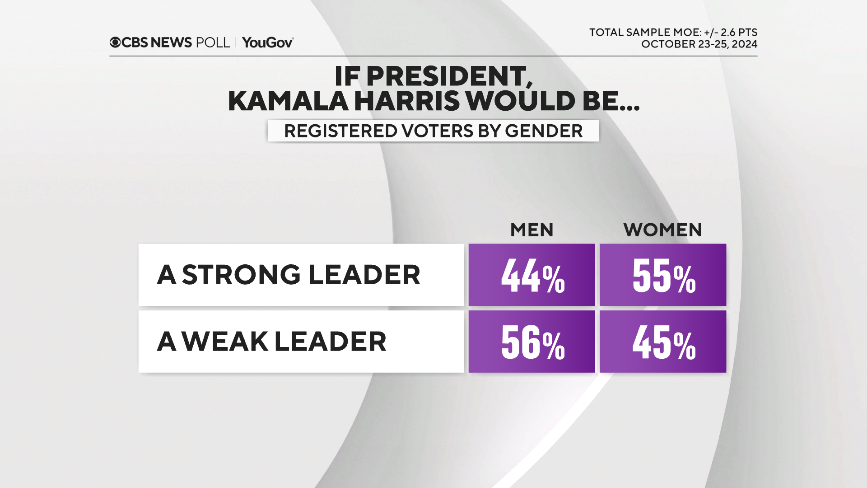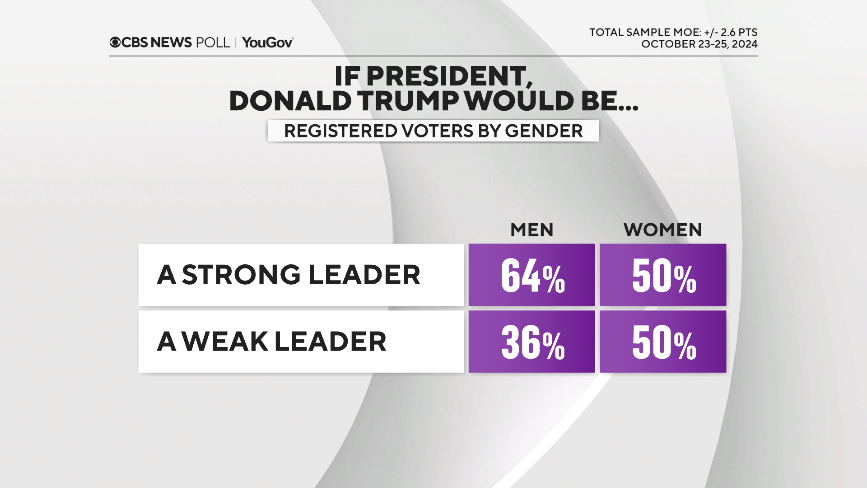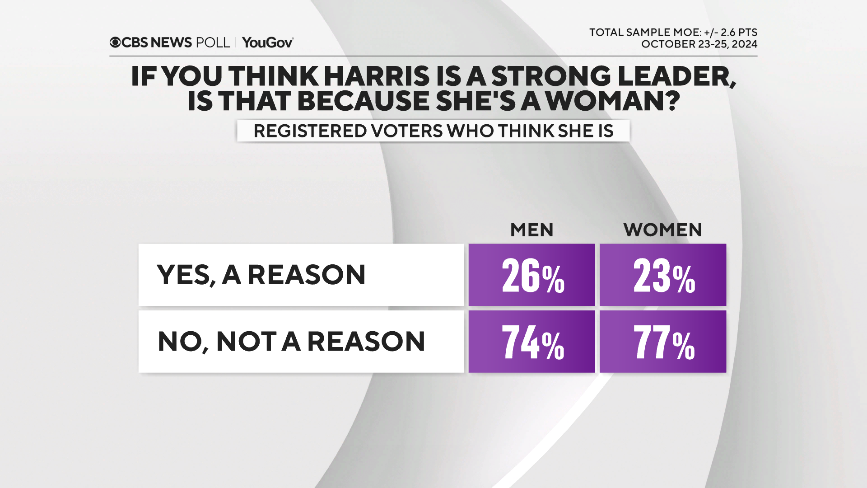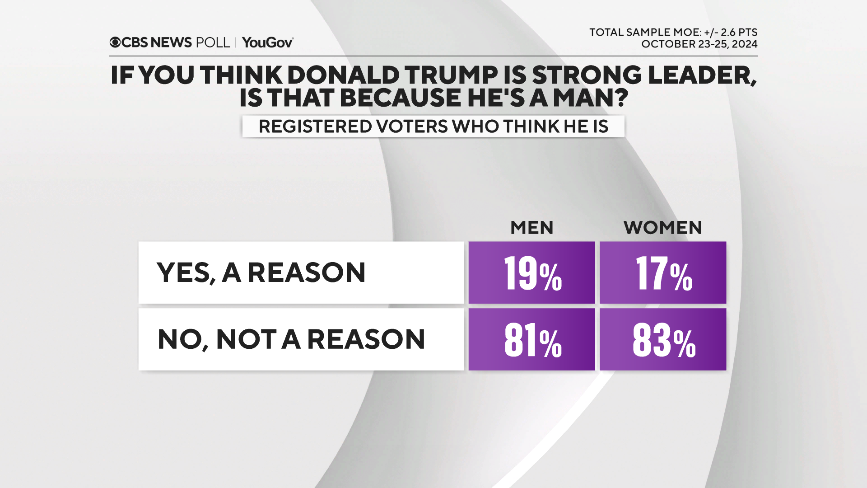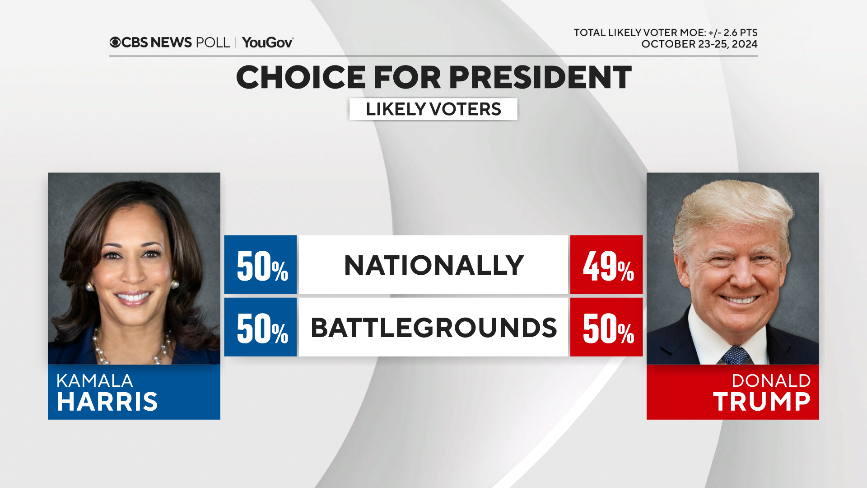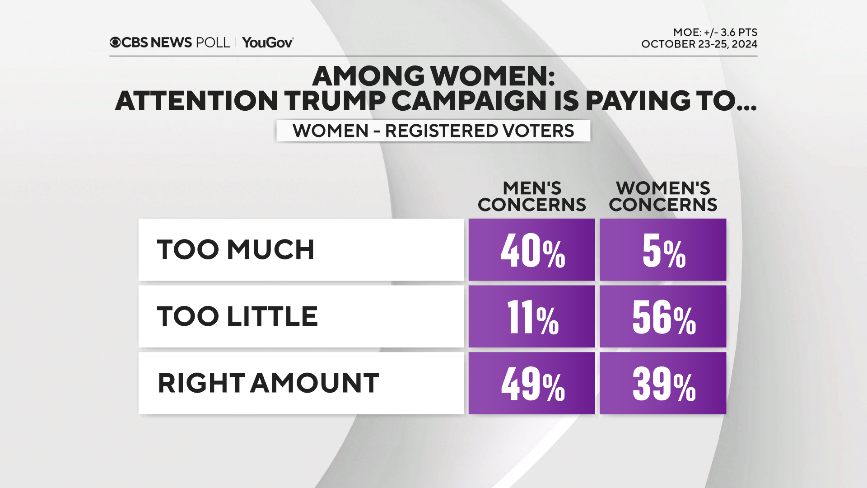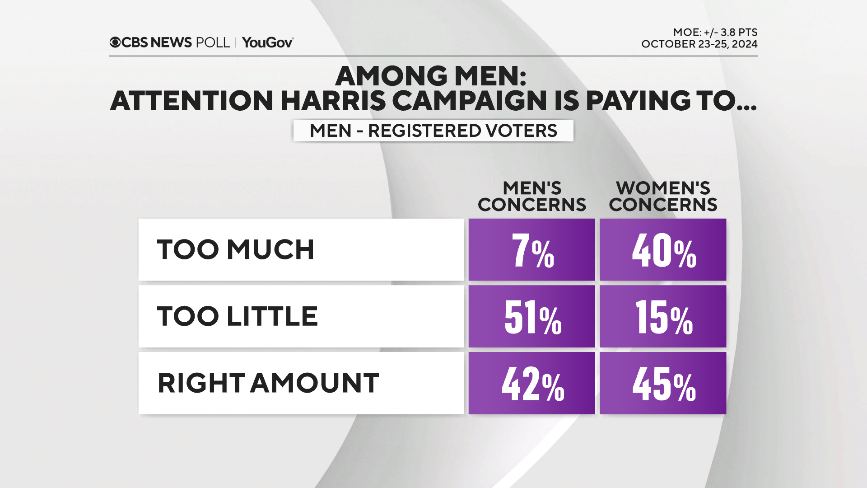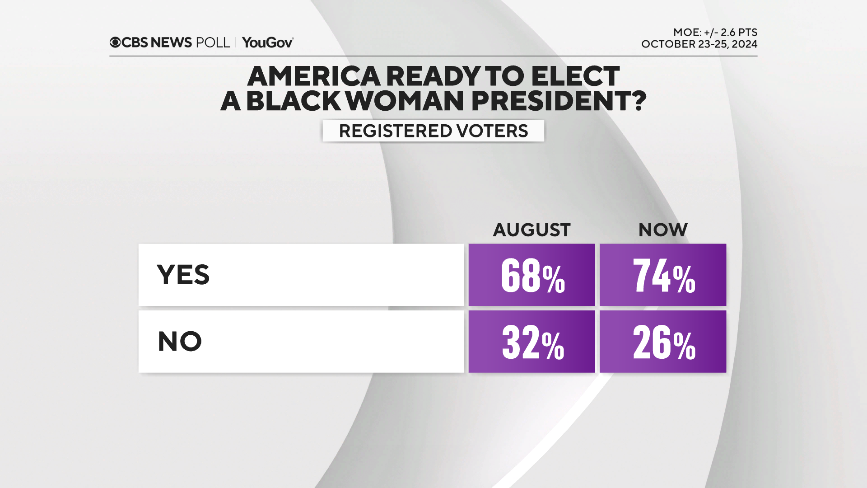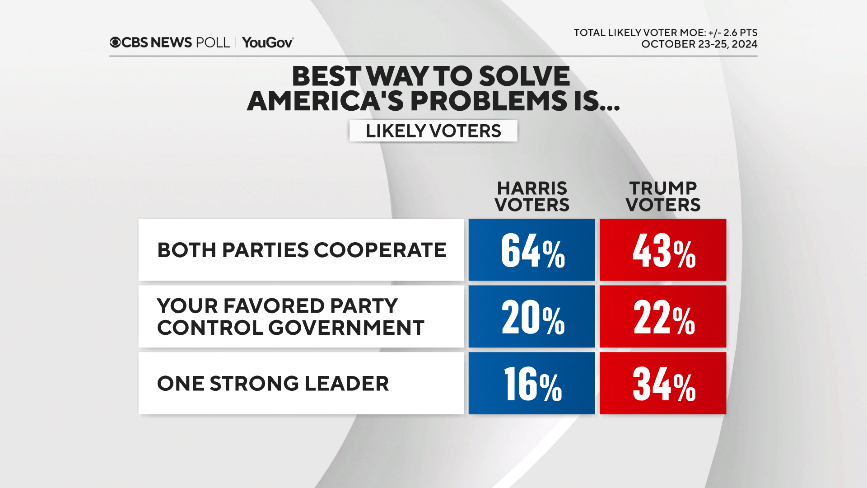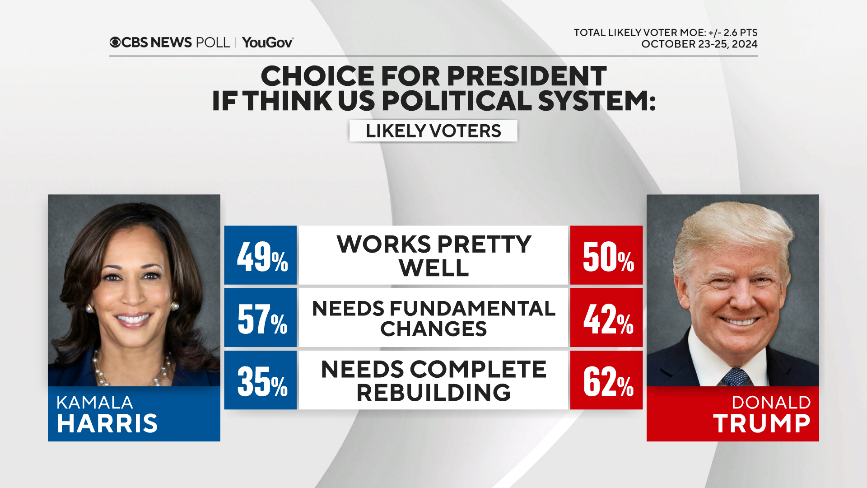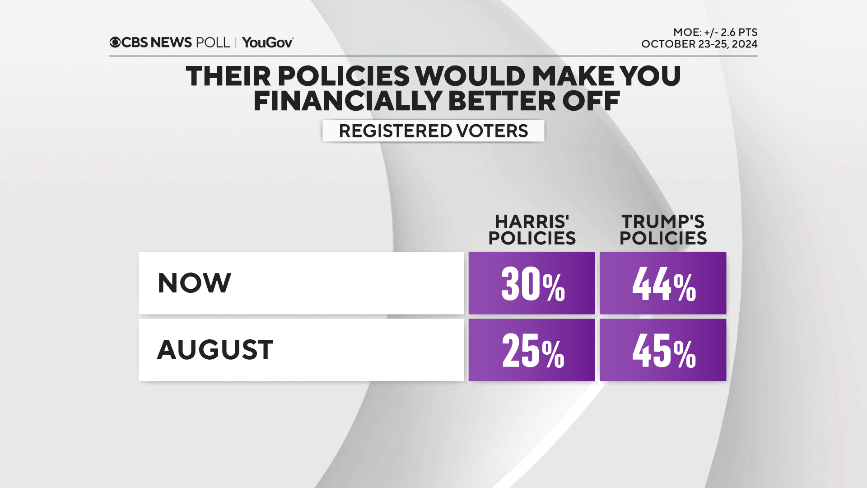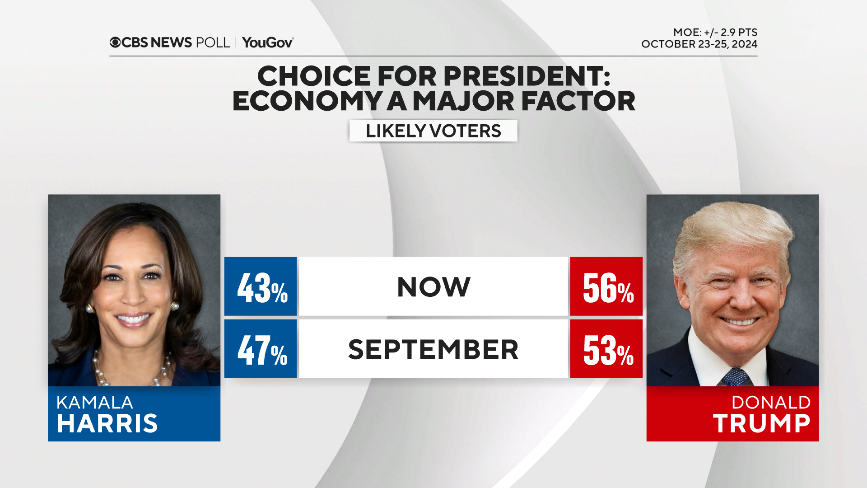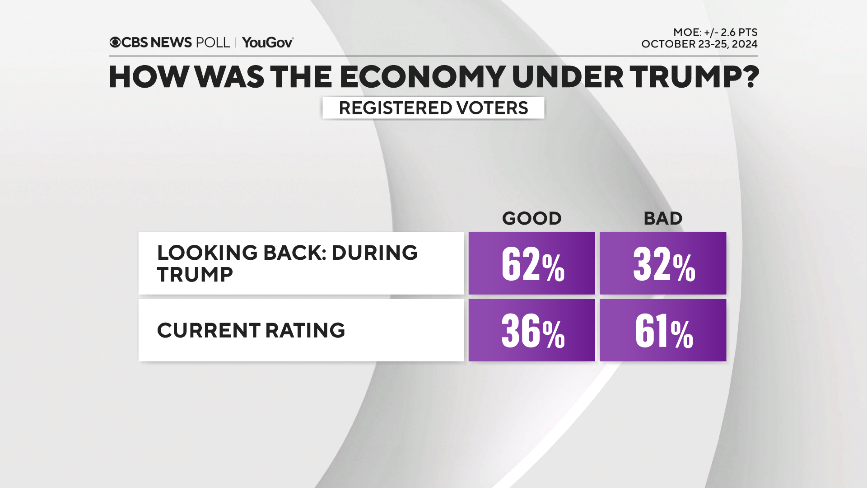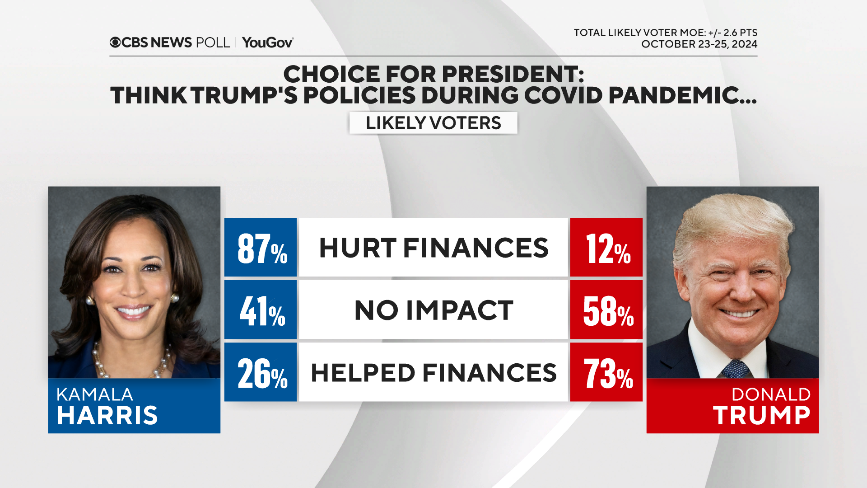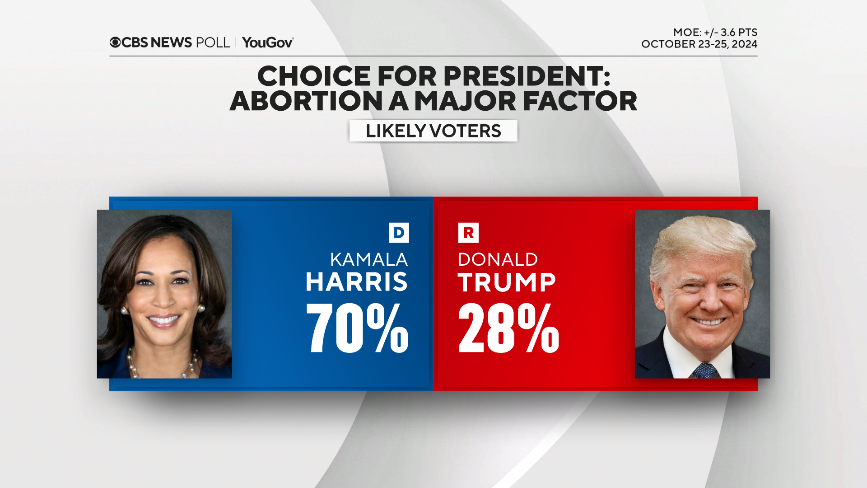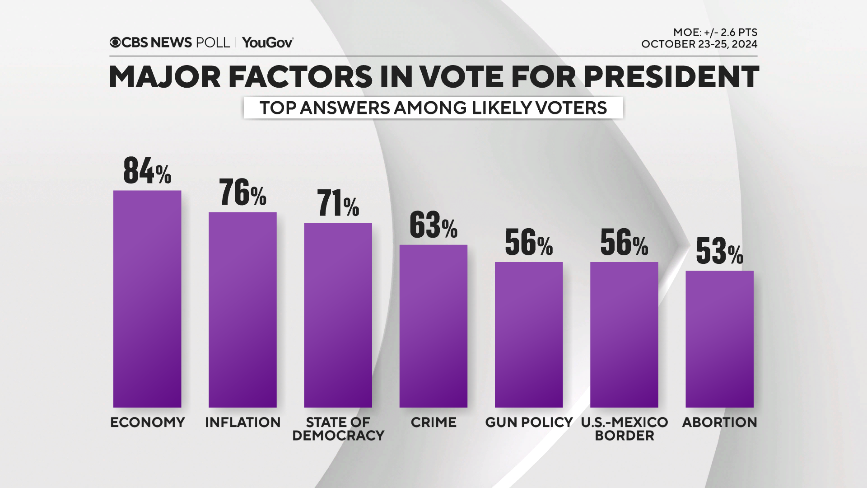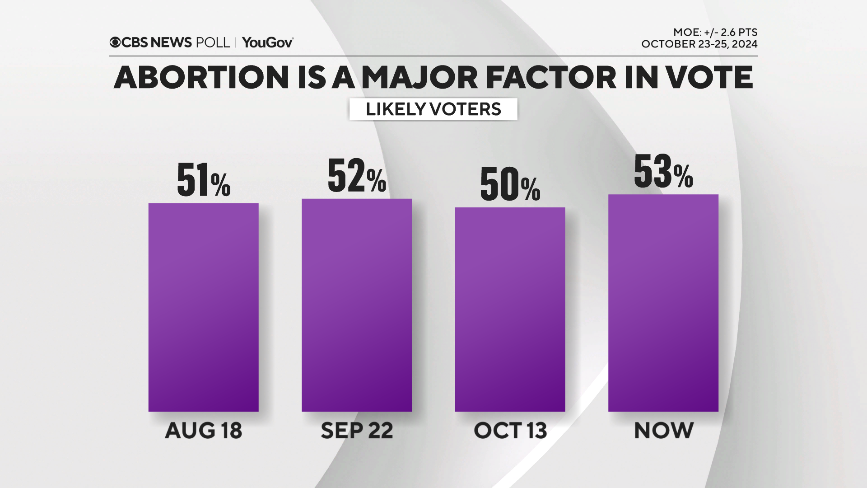Amid an election-defining gender gap that is now tied for the largest this year, the already close presidential race between Kamala Harris and Donald Trump has become closer still.
But vote differences in the 2024 election between men and women are not just crosstabs on a poll memo. They reflect divergent attitudes about larger social matters, such as gender equality in the U.S. More immediately, they mark differences in how candidates are seen, with more women saying only Harris has the cognitive health to serve and more men thinking Trump would be a “strong leader.”
Here’s one example. Men are more likely to say efforts in the U.S. to promote gender equality have gone too far of late. When they do, they’re voting overwhelmingly for Trump.
Women are more apt to say those efforts haven’t gone far enough. Voters who say this are overwhelmingly for Harris.
And on this candidate assessment: women are a full 10 points more likely than men to say that only Kamala Harris has the mental and cognitive health to serve as president, and Trump does not.
Men are less likely than women to think Harris will be a strong leader.
But a sizable majority of men think Trump will be a strong leader.
For both men and women who think Harris would be a strong leader, a quarter say it is because she is a woman. For those who think Harris won’t be a strong leader, nearly 1 in 5 say it’s at least partly because she is a woman.
In all, it nets out to even — and to an even-tighter contest. It’s tied across the composite battleground states collectively, and Harris is down to just a +1 in national vote preference. (Harris had once been at +3 in the battlegrounds in September and it narrowed to +1 two weeks ago. Trump has incrementally erased a 4-point national edge Harris had after their debate.)
In individual CBS estimates from the specific battlegrounds, it’s also effectively tied. For context, in recent history, Democrats have needed a larger national polling lead to imply competitive Electoral College chances across the battlegrounds because so many of their national votes have come from larger, safely blue coastal states. But this year, at least so far, we see a different pattern in which the battlegrounds track more closely to the national.
Addressing the concerns of men and women
On balance, voters say women face more discrimination than men do today, and women are especially apt to say so. But men who think men face at least some discrimination (and half of them do) are voting for Trump. Women who think women face discrimination are overwhelming for Harris.
There’s also a gender gap on who thinks they’re getting attention from the campaign.
Most men think Trump is paying the right amount of attention to the concerns of men, but many think Harris is paying too little.
Women, by contrast, say Harris is paying enough attention to women’s concerns, but don’t think Trump is.
A sizable 4 in 10 women think Trump’s campaign is paying too much attention to men.
But the percentage who say the U.S. is “ready to elect a Black woman as president” has risen, and this majority includes people who are voting for Harris and many who are not.
Approaches to governance
There’s plenty of talk in this campaign about how the candidates might lead as president, not just about policies. And on that we see differences by age, and some by gender too, but plenty by party.
Asked how best to solve the U.S.’ problems, voters mainly call for cooperation between the parties. Some — often the more ideological partisans — think one party running government would be best.
Trump voters are twice as apt as Harris voters to call for “one strong leader to do what they think best.”
Younger voters — and in particular younger men — are comparably more likely to say the country needs that.
Trump continues to win the votes of people who think the U.S. political system needs to be completely rebuilt.
The economy — and how it still underpins Trump
Some potentially good news for Harris is that people say they’re judging her more on her own economic plans than on the economic record of the Biden administration.
She’s cut a bit into his edge on who’d make people financially better off.
But that edge remains nonetheless, and she has stalled in cutting into Trump’s edge with voters who say the economy is a major factor for them.
A big majority continue to say they recall the Trump economy as good, so Harris has not gotten voters to reconsider or rethink that memory.
People are split over whether Trump’s policies helped them financially during the pandemic specifically, and that cuts to vote.
A few notes on what’s changed since Harris last month had more of an edge:
Perhaps one of the biggest indicators of why this race remains so close: Harris does well when people rate abortion as a top issue, especially among women who think so. And it is a major issue for half, but she has not succeeded over the course of the campaign in getting many more voters to rate it as a top issue. It’s hovered in the low 50s range for those who call it a major factor.
This CBS News/YouGov survey was conducted with a representative sample of 2,161 registered voters nationwide interviewed between October 23-25, 2024. The sample was weighted according to gender, age, race, and education based on the U.S. Census American Community Survey and the U.S. Census Current Population Survey, as well as past vote. Respondents were selected to be representative of registered voters nationwide. The margin of error for registered voters is ±2.6 points. Battlegrounds are AZ, GA, MI, NC, NV, PA, and WI.


